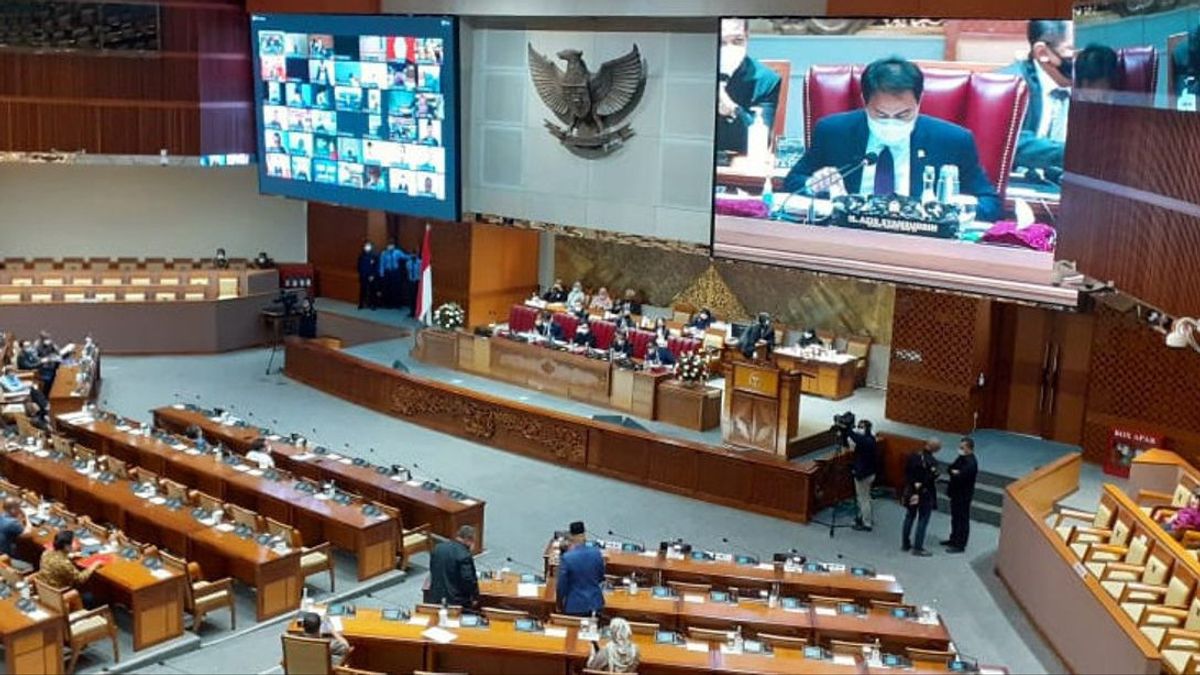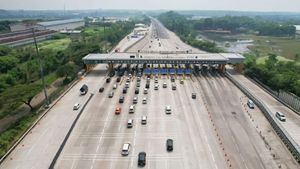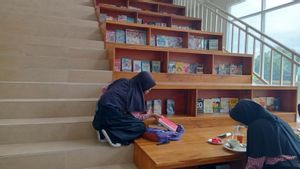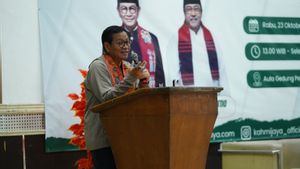JAKARTA - Yesterday, the Indonesian people were shocked by the government's rush to pass the Omnibus Law regulation. The government seems to be ignorant. The legislative function of the House of Representatives (DPR) appears paralyzed. The proof is that they are like covering their ears at the voices of the workers who reject the regulation. It is difficult to think that the DPR still represents the voice of the people.
Regulations drawn up using the omnibus method have long been echoed in Indonesia. Even in his first speech when he took office in the second term, President Joko Widodo immediately stepped on the gas so that the regulations covering the Job Creation Law and the UMKM Empowerment Law were lifted.
"Each of these laws will become an Omnibus Law, which is one law that simultaneously revises several laws, even dozens of laws," said Jokowi.
On Wednesday, September 12, Coordinating Minister for the Economy Airlangga Hartarto submitted the draft Omnibus Law Bill to the Chairman of the DPR, Puan Maharani. The draft submitted consists of 15 chapters and 174 articles.
At that time, the DPR guaranteed that the discussion of the Work Creation Omnibus Law Bill would involve workers. This was conveyed by Deputy Chairman of Commission IX of the DPR Sri Rahayu. He also ensured that the discussion of the Work Creation Omnibus Law Bill was not closed and that labor groups would be involved in the discussion.
"In my opinion, it is possible for gentlemen from the union to provide input. I do not think it will be closed to that," said Sri when receiving representatives of the Confederation of All Indonesian Workers Unions (KSPSI) at the Parliament Complex, Senayan, quoted from Kompas.
In line with that, Deputy Chairperson of the DPR, Rachmat Gobel, also guaranteed that the DPR would hear the aspirations of the workers and would be involved in the deliberation of the Work Creation Omnibus Law Bill. "We will fight objectively, benefit this nation, for families who have not been able to work, and also for friends in front," said Gobel, convincingly.
Entering April 2020, the DPR began discussing the draft Omnibus Law Bill. Together with executives they discussed the investment ecosystem, business activities and employment.
The discussion of the policy when the COVID-19 case was again highly criticized by many parties. The people suggested that the DPR focus more on managing the pandemic, but the DPR and the government did not budge. The Omnibus Law remains priority.
Step on the gasThe government continues to move and appears to be indifferent to the pressure. In August, the Coordinating Minister for Maritime Affairs and Investment Luhut Binsar Pandjaitan pushed for the discussion of the Omnibus Law Bill to be completed soon, at least by the end of August. Luhut sees that with the Omnibus Law the licensing process, investment requirements, and others will be simple.
However, the community still rejects these efforts. To ease pressure from residents, the DPR made promises again. Chairman of the DPR Puan Maharani said that the DPR would receive input from the public, laborers, government, and investors in the deliberation of the Work Creation Omnibus Law Bill. He said the DPR would provide room for discussion of the bill.
"The goal is how to provide space in dealing with employment opportunities. Do not let one party be disadvantaged, but there are parties who will benefit more," said Puan in a written statement, quoted from Tempo.
Until finally on October 3, just as the residents were having a weekend, the DPR and the government agreed to the Work Creation Omnibus Law Bill. The two sides agreed that the regulations would be passed at a plenary meeting scheduled for October 8.
What is even more surprising is that the agenda for the ratification was accelerated to 5 October yesterday. The meeting took place at the DPR RI building chaired by the Chairman of the DPR RI Legislation Body, Supratman Andi Agtas. The meeting was also attended by 318 DPR members, Coordinating Minister for the Economy Airlangga Hartarto, Minister of Law and Human Rights Yasonna Laoly, and representatives of the DPD RI.
They argued that the acceleration was carried out because the COVID-19 cases in the DPR continued to increase, the closing of the trial period had to be accelerated. Of the nine party factions, only two refused.
The people's representatives' empty promisesSeeing the journey of the Omnibus Law which started from the idea of being passed into law, the DPR did not consider workers' voices as an important element because they were most affected by the Law. The promise to involve workers in discussing the Omnibus Law Bill on Job Creation is nonsense, as evidenced by meetings that were held suddenly, held at night, even hastened.
Executive Director of the Indonesian Forum for the Environment (WALHI) for DKI Jakarta Tubagus Soleh Ahmadi said that it is important to know the track record of policies taken by the people's representatives. What is happening in the current political situation can be a note for the people that they, who were elected by the people, have turned back to betray the people. People who bear the word 'people' in the House of Representatives are not on the people's side.
"However, we should not only look at the track record, but also have to look at the historical record because this is one of the great histories of the Indonesian nation, where our current situation is not only facing a pandemic, the environmental crisis needs a quick recovery. Instead, they open up opportunities for the environmental crisis to deepen and increasingly widespread, "said Tubagus Soleh Ahmadi, when contacted by VOI.
Ahmadi assessed that the DPR is currently controlled by the oligarchs. According to him, the oligarchs have indeed controlled the political and economic situation of this republic.
"This is not a question of the political situation, but the political situation which has been controlled by the economic oligarchy that controls the economy in this republic. Those who have business are also in this republic. So, this must be fought," said Ahmadi.
According to him, if the DPR continues to ignore the people's voices, they deserve punishment. One of the ways is by boycotting the products made by one of the oligarchic groups and continuing to carry out collective protests.
"We have to do something to punish them, and it is very important. In many ways. For example, boycotting the products of the oligarchs that are not pro-people and continuing to carry out collective protests. So, don't get caught up in choosing them. Because, they are controlled by the oligarchy," "he concluded.
The English, Chinese, Japanese, Arabic, and French versions are automatically generated by the AI. So there may still be inaccuracies in translating, please always see Indonesian as our main language. (system supported by DigitalSiber.id)









